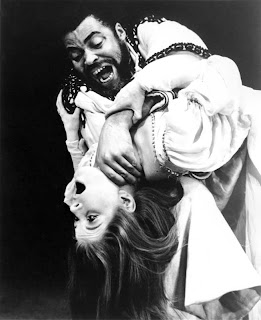It’s not easy being green . . . or so Kermit says. It’s even harder when you’re struggling withthe green-eyed monster who feasts on the flesh of jealousy. Kermit doesn’t seem like the jealous type . .. perhaps he was green with envy.
Why is green the representative color of such fierceemotions.
Shakespeare told of the green-eyed monster in Othello “O! Beware my lord, of jealousy; it is thegreen-ey’d monster which doth mock the meat it feeds on”
. . . and again inThe Merchant of Venice. "How all the other passions fleet to air,as doubtful thoughts and rash embraced despair and shuddering fear andgreen-eyed jealousy!"
Shakespeare, however, did not make the first association withthe color. That goes back much, muchfurther.
Sappho, a seventh century B.C. poetess Sappho uses the colorto describe the face of a stricken lover. After that, the word was used freely byother poets to denote jealousy or envy.
My eyes are dead tolight, my ears
pound, and sweat poursover me.
I convulse, greener than grass . . .
I convulse, greener than grass . . .
 The Greeks who believed that jealousy was accompanied by anoverproduction of bile. The bodilyfluids or "humors" were said to lend a yellowish-green tinge to hewho was jealous.
The Greeks who believed that jealousy was accompanied by anoverproduction of bile. The bodilyfluids or "humors" were said to lend a yellowish-green tinge to hewho was jealous. You should note that I say “he who was jealous” . . . he. That is because men have a strongertendency towards jealousy than the fairer sex. How do I know this? It’sevolutionary, my dear Watson, evolutionary.
It is a fact that males . . . not females . . . risk the possibility thattheir offspring could potentially be those of another . . . of a rival male. Therefore men often suffer from “paternityinsecurity" . . . the focus of jealousy is generally pointed directly the would-be(or could-be) physical infidelity of his chosen mate . . . whether real orimagined.
“Jealousy is that pain which a man feels from the apprehension that he is not equally beloved by the person whom he entirely loves”






Tidak ada komentar:
Posting Komentar